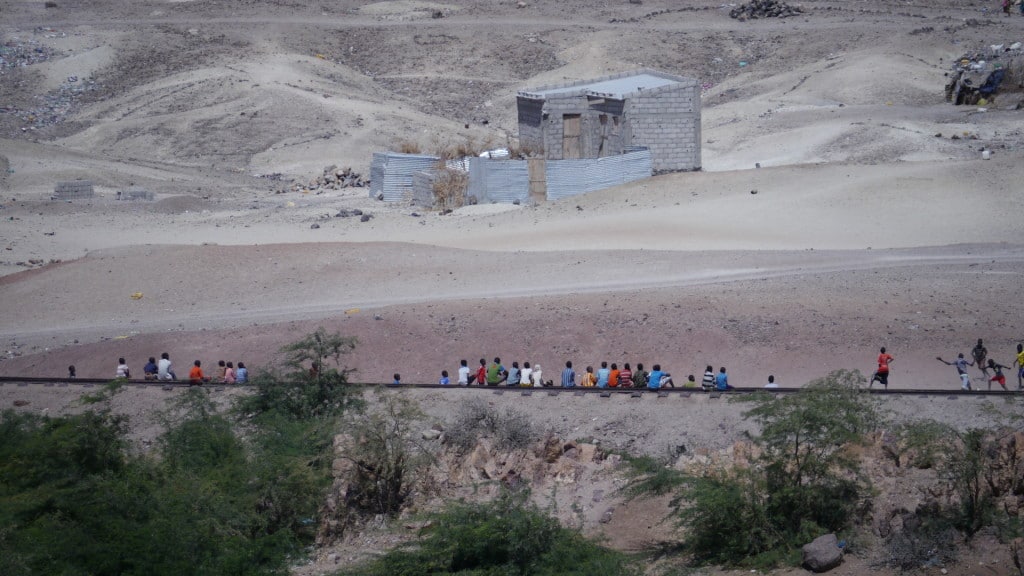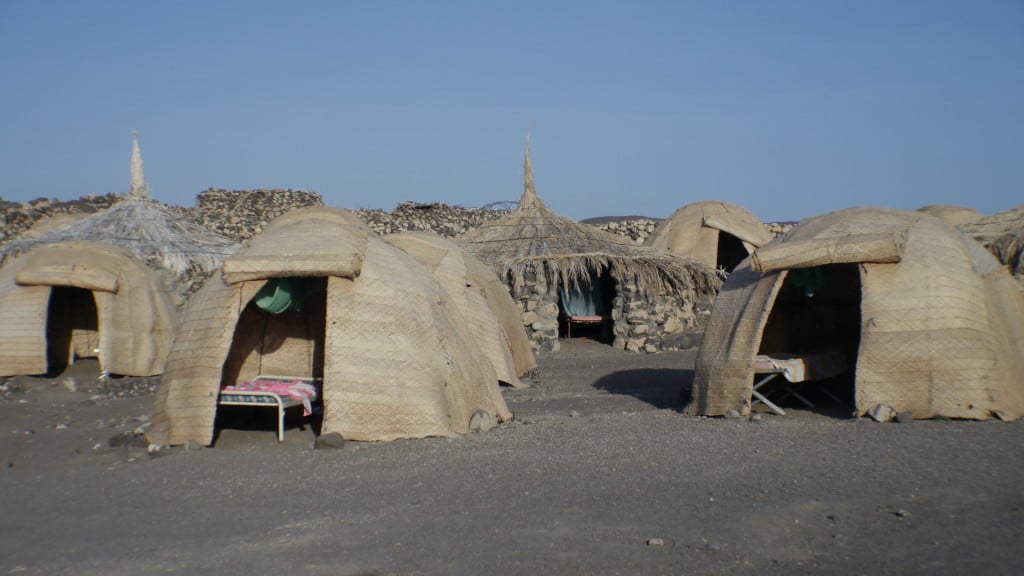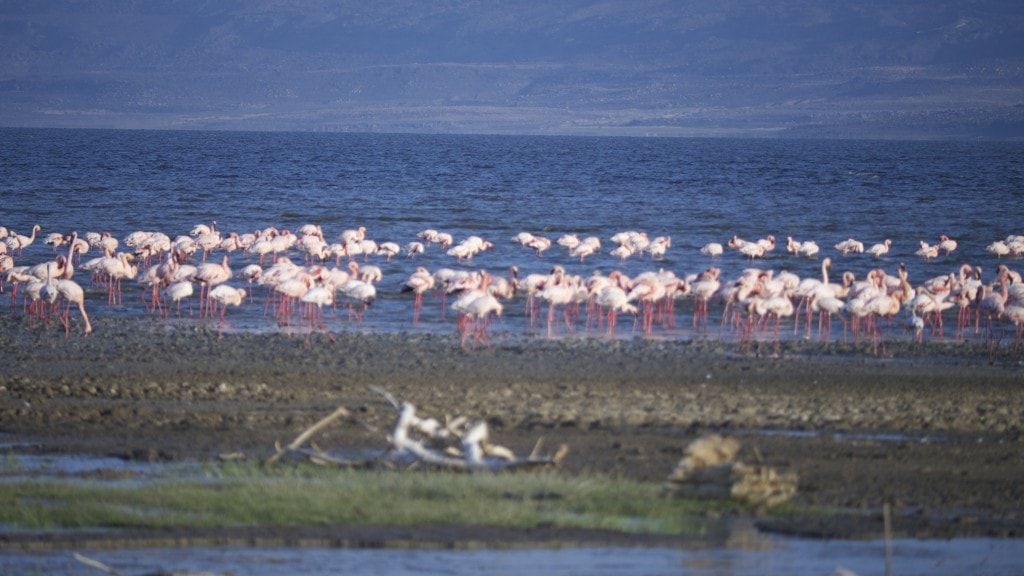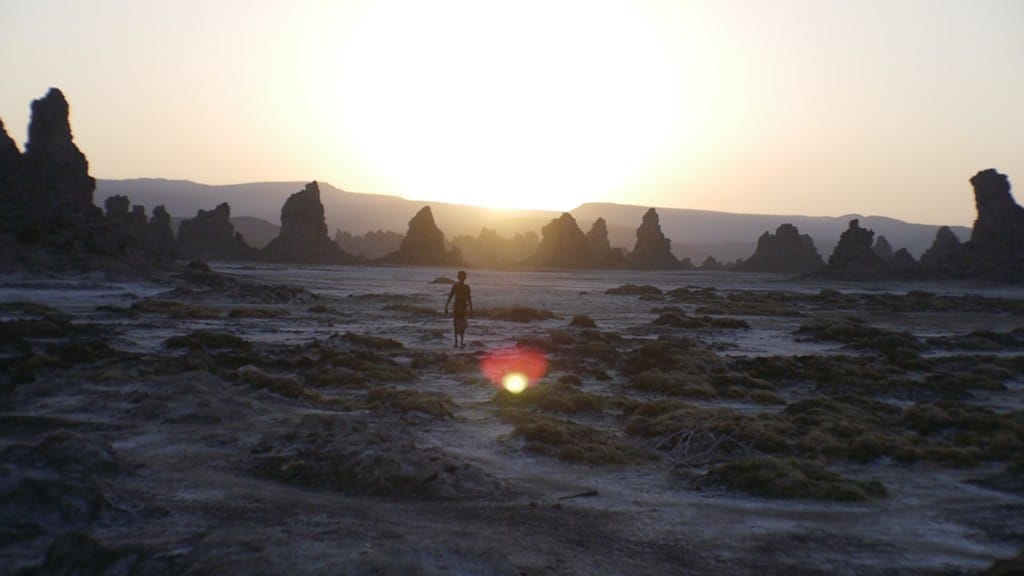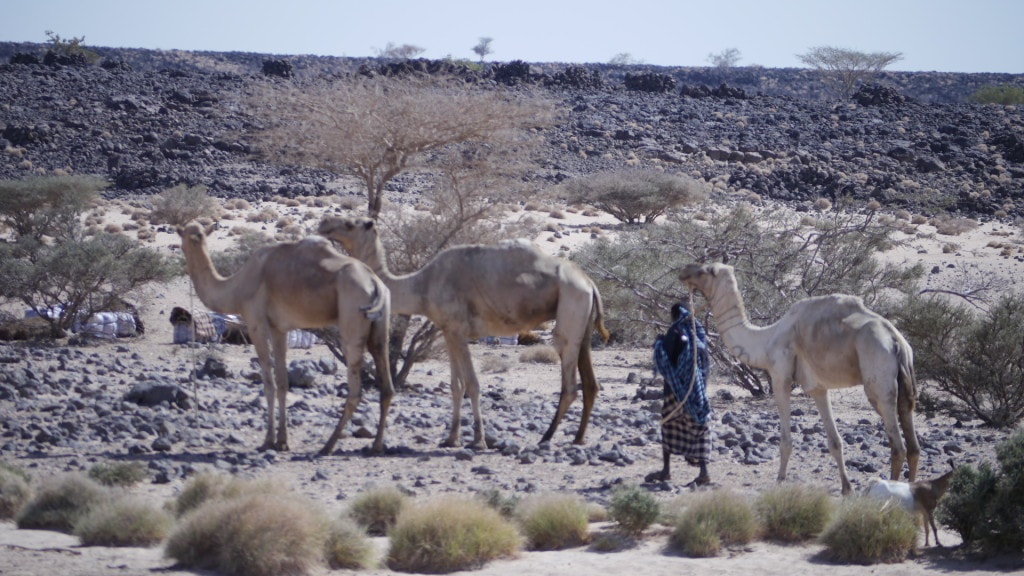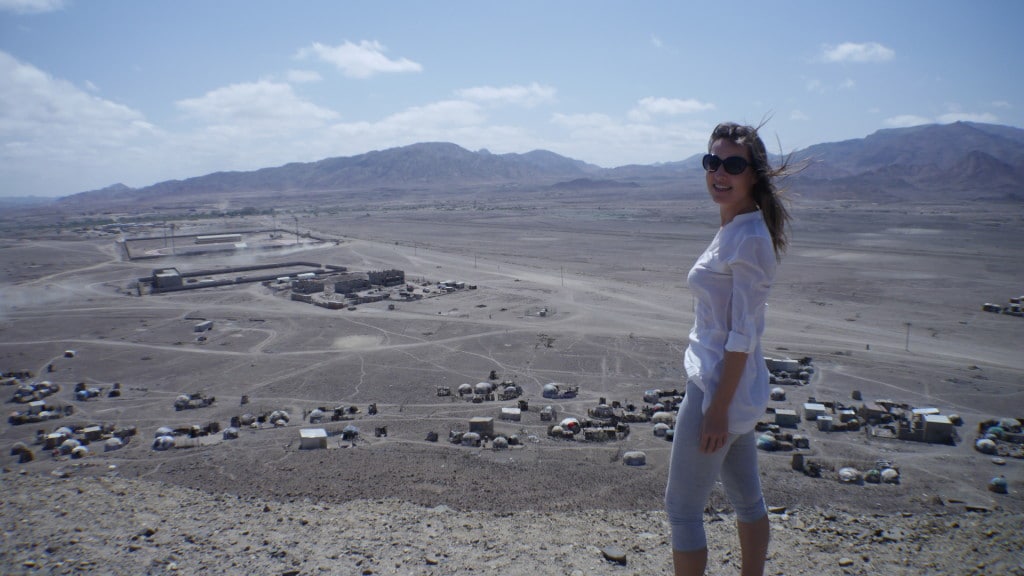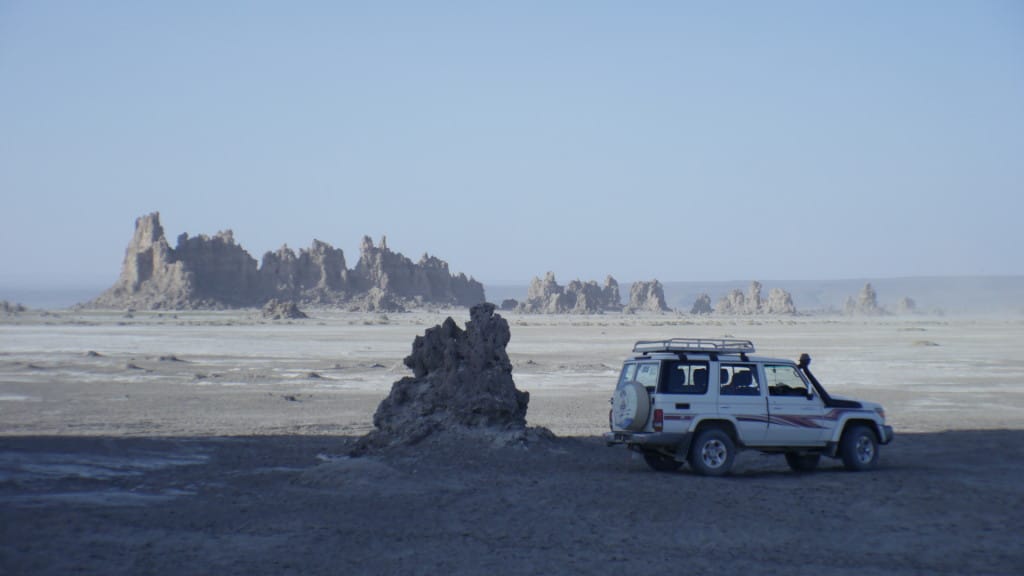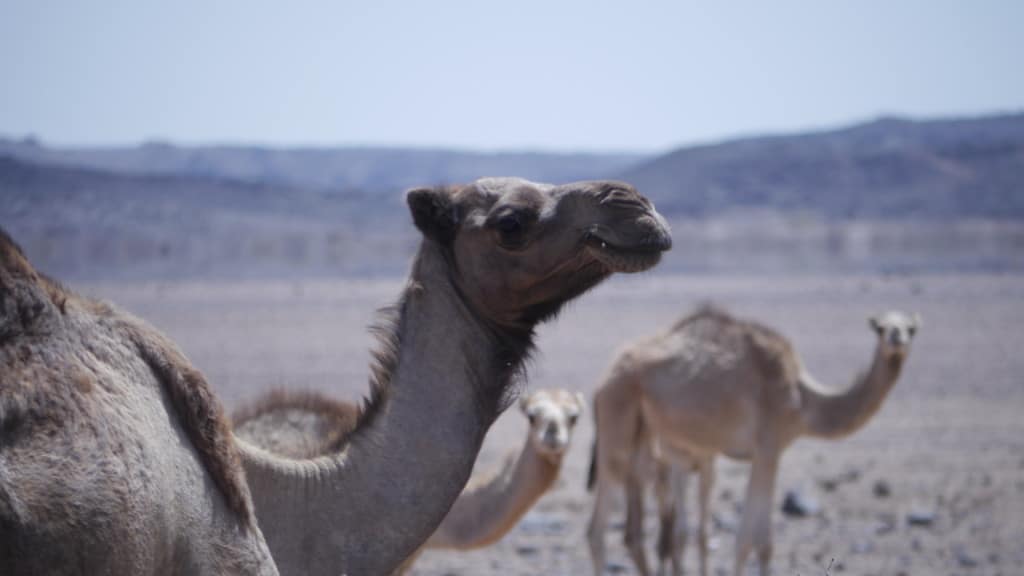Remote and off the beaten path countries are my weak spot. I can’t explain what it is about these least visited countries in the world that attracts me. I could speculate that it is a mixture of the thrill of the unknown or the bragging rights that come with being the first among my extremely well traveled friends to go there. It could also be that I have grown tired of going places where the tourist is seen as a mere source of income rather than welcomed as a guest and I crave the true hospitality that I have experienced in many a remote destination.
But the real reason is probably that I long to hear from places that nobody goes to, from realities that you can’t fathom, from places that only appear in history books, from the people themselves, first hand. I am addicted to going places tourists don’t visit to hear stories that have never been told before.
The reality though is that lots of countries don’t get tourists because they are not as good as others at promoting themselves. In most cases though there are lots of reasons why tourists don’t go to those places.
Going where nobody goes tends to imply a very tedious journey; it is either a hard to get visa or an expensive flight or a cumbersome arrival procedure, or a dangerous business. Or more likely, a combination of all three. Top that off with some bare infrastructure and you have a recipe for only the most adventurous. Usually, once you pass through all the hurdles, the rewards are infinite.
People are genuinely hospitable, friendly and willing to share a slice of their paradise with you in an unquestionably generous manner that you can hardly find anymore in the oft-visited countries. You also get a peek into the lives of different cultures, a real insight, not a staged one just for tourists and hear stories that you will never forget.
I can’t argue that countries which top the list of most visited ones are not friendly or welcoming to foreigners. I, for one, come from one of them. But it is true that in the sub-conscious of many people working in the tourism industry in those countries, the business of welcoming visitors has become just that, a business, and so, with every gesture or act of kindness there is an associated price which does not exist in places where tourism has yet to take off. In those places an act of sharing does not expect something in return.
Meanwhile, because of my past professional experience, I see places which have beautiful people or extraordinary sights but who do not promote them in any material way as a lost opportunity. I can’t help but go to Timor Leste and fantasize of a time when diving off the coast of this beautiful place or enjoying its perfect beaches would be easier than a $1,000 flight twice a week from Singapore and ridiculously expensive but basic accommodation options.
In Djibouti I had a moral dilemma derived from this.
The country has so many important, unique and incomparable sights that I wondered why tourism is so undeniably inexistent. We talk to one of only two inbound outfits in the country and to the very few people in the tourism industry and they sorely admit that there are no tourists to speak of. The only people going on tours to the stunning Lake Abbe or Lake Assal are the soldiers of the various international military bases or, if luck strikes, their families and visitors. Aside from that, there are virtually no tourists. I can easily believe that after our arrival experience.
We were interrogated by the immigration officer as if we were spies. He could not believe we were coming for only 4 days on holiday and we had to show onward tickets, hotel bookings and boarding passes. He even wanted to see our luggage filled with shorts, hats, sunscreen and mosquito repellent. We were then set aside and, after navigating the bureaucracy, were issued with a visa for exactly 3 days, the shortest visa I have ever been issued. And it did not come cheap. We had to pay $60 each for it.
The Kempinski Palace, financed by Dubai’s Sheikh Mohammed Nakhel company, is frequented by the very few army officials and soldiers from the Spanish army who are living at the hotel. The expansive grounds and the huge number of rooms are almost completely empty. In the corridors there is talk in Spanish but aside from that there are very few other visitors. We see the occasional businessman in the ports or security industries, but that’s all.
A part of me wonders why such an interesting and geologically rich country does not even feature on the map for most people. Has the National Geographic ever come here?
When friends asked me where I was going for Chinese New Year very few of them knew of the country’s existence. And that is among the sample of frequent flyers I have as friends. Half of them thought it was a province in India and the other half had never heard of it. Virtually nobody placed it on a map, except for a friend who spent time in South Sudan working with refugees. I don’t blame them; it is a speck of a country of less than a million inhabitants sandwiched between Ethiopia and Somalia, both of which are rather remote.
Truth be told, I did not know much about the country before deciding it would be a good idea for a 4 day escape. I only checked it was easily reachable, by my insane standards at least, and that I did not need a visa. Whatever was there to visit did not matter, it was a chance to get back to Africa and it was the gateway to a part of Africa I had yet to explore, with the exception of North and South Sudan. Just being there soaking in the culture would be enough, I didn’t need documentary-worthy places of interest. And I knew it was a rather safe place, without having dwelled too much into the details.
It only appeared, after doing some research, that the country had some interesting sights that could easily keep us busy. Even now, after having been there, I am even more certain that travel guides and the internet at large don’t do it justice. There is more to the country than appears on the very brief pages of the Lonely Planet’s Ethiopia, Djibouti and Somaliland guide. To describe its three biggest points of interest in less than half a page is an unfair rendition to a country with a wealth of historical and completely unique sights.
The landscapes of Lake Abbe, its natural hot springs steaming through the chimneys, the earthquake caused canyon that may one day split this part of Africa into a separate island, the prehistoric petroglyphs (rock paintings), the ancient dried out lakes turned into barren deserts, Lake Assal’s salt formations, much more eye-catching than the Dead Sea, or the pretty islands and white sand beaches could easily keep you busy for a week. Even Djibouti city offers a very unique downtown area with a grid-like Arabic Quarter made of very colorfully painted intricate corrugated-iron houses some of which have two stories. It was fascinating.
After visiting over 85 countries I can easily say that what I experienced in Djibouti I had not seen anywhere else. It is true that some parts reminded me of other places but the unrepeatability of most of the country makes it a very appealing destination for adventure-seekers and world explorers.
Why does Djibouti receive so few tourists?
There are plenty of countries with the similar hurdles to tourism as Djibouti but who get more visitors and I couldn’t help but reflect on the reasons. Until our departure from the country. A massive argument with the police officials almost left me stranded in the country for an additional 4 days because of my drone. And then it hit me. The country is not hidden from the international tourism circuits by chance but it is an intentional effort to keep it isolated because of the security concerns that a flood of tourists would bring.
Let me elaborate.
Djibouti survives on its strategic role in the world’s most transited container ship route through the Suez Canal. The area is dominated by the threat of piracy. The only revenue to the country is its port and its importance as a military base to all the world’s super powers. Most of the largest Western economies have a military base in the country to protect their interests and their vessels transiting through the Gulf of Aden. This not only brings income to all the ancillary businesses but also a guaranteed security.
Walking around the old parts of town at dusk in near darkness I never felt in danger. We had been told by almost everyone that the country is very safe. Theft does not exist and crime has been eradicated. It helps that there are over 10,000 soldiers from the various countries stationed across the country or even living out of the top hotels. It is not just the Spanish who chose the Kempinski instead of their own military base but also the Swedish. The Germans stay at the Sheraton. In and around the port the amount of security is obvious. As we sail to Moucha Island we are followed by the speedboat guarding one of the Spanish military ships anchored at port until we are far enough from it. Our guide tells us that if that was a US boat it would be staffed with American soldiers holding Kalashnikovs aimed at us and ready to shoot. All navy ships have their own escort patrolling around them while anchored at port. In fact, they don’t usually come close to port preferring the safety of the high seas.
On our way back we spot a very beautiful super yacht in the waters close to the port and our guide wonders who it belongs to so we approach it slowly to ask the crew. They immediately come out and fear we might be pirates. We wave and smile at them as our guide looks out for any guns on their end. We scrutinize each other, everyone holding their breathe and with a clear air of tension, until they see me, wearing colorful clothes and a wide brim beach hat and clearly looking like a tourist. It is all out of a James Bond movie, surreal as only life in Djibouti can be.
Eventually, our pilot and guide smile profusely and shout that we are just curious to see the boat and they feel comfortable enough to gesture that we are welcome to approach but our guide decides it is not a good idea because we are probably being monitored by any of the armies that patrol the port or by any of the fighter jets that circle above us and that it wouldn’t be wise to open questions about our intentions in dealing with a boat that has yet to clear customs and immigration procedures.
And so life goes on in one of the most militarized parts of the world.
Security is ingrained in day-to-day life
It is not just the army that attracts an increased level of security. The amount of police all around is turned up several notches. There are road controls manned by the Djibouti Gendarmerie and any boats coming in or out of port need to be registered with the Coastal Guards.
The Kempinski Palace cannot be accessed by any outside car that is not known to them, public taxis are not allowed anywhere in the hotel’s grounds so you have to walk from the road to the hotel with your luggage.
I have been to lots of airports in countries where the risk of war or terrorist attacks is very real. Usually, cars are checked for explosives following certain security protocols but I had never been asked off the car and forced to go through a metal detector to access to airport road. After we were cleared, we got back into the taxi to enter the airport parking.
This obsession with security, so critical to the country’s position as a safe haven in a region that is assaulted by constant terrorist threats, piracy and war is present in the mindset of ever Djiboutian and has become a way of life they are resigned to.
We meet army officials and soldiers in the most remote of places. At Lake Abbe we come face to face with the French army. They were on their way to conducting some training when one of its tanks sank into the soft mud. References to locations are often accompanied with commentary on them having been the object of French or Djibouti army training grounds for parachuting or otherwise generic training. Most modern buildings either belong to the local or the various international armies.
I ask before taking any photos, of anything. In the case of people, we provide payment in the form of water, so precious in the unforgiving desert sun, or lollipops, a rarity even for adults, at the suggestion of our guide, but in the case of any building or anything remotely related to the army I am advised against.
It is not a place anyone should wander alone. Even if the infrastructure would allow you to, which it doesn’t, it would not be wise to walk around by yourself, lest this be a sign that you belong to an undercover intelligence agency operation or, even worse, part of an international news agency. Journalists are not welcome. Better if you look chubby and clearly out of shape so they think less of you as a threat. Women are probably seen as less dangerous, or so I felt. The right side of sexism I suppose.
Djibouti may never become an important tourist destination but it is unfairly forgotten by even the most adventurous of travelers. Next time, instead of cooking up an adventure in Northern India, Pakistan, Ethiopia, Yemen or Oman consider Djibouti. Once you get passed the airport officials you will be in an extremely welcoming and friendly country with unique experiences that you are likely to have all to yourself. Talk to the people, hear their stories, you don’t need to buy a ticket to a thrilling James Bond movie. And when you look up into the starry night over Lake Abbe or take a dip into the salt-saturated Lake Assal you will not remember the extra hour you had to spend to get there but will only think of the beauty of this remote and precious country and like me, will wonder why the rest of the world has never heard of it.
- Check if you need a visa, get help processing it at iVisa.
- Never ever leave without travel insurance. Get affordable coverage from World Nomads or long term insurance from Safety Wing.
- I find all of my flights on KAYAK. Check their Deals section too.
- Search for all your transportation between destinations on the trusted travel booking platform Bookaway.
- I book all my day trips and tours via GetYourGuide, they are the best and their tours are refundable up to 24h in advance.
- Get USD35 off your first booking with Airbnb.
- Compare hotels EVERYWHERE at HotelsCombined and book with Booking.com.
- Compare car rental prices at Rentalcars.com

